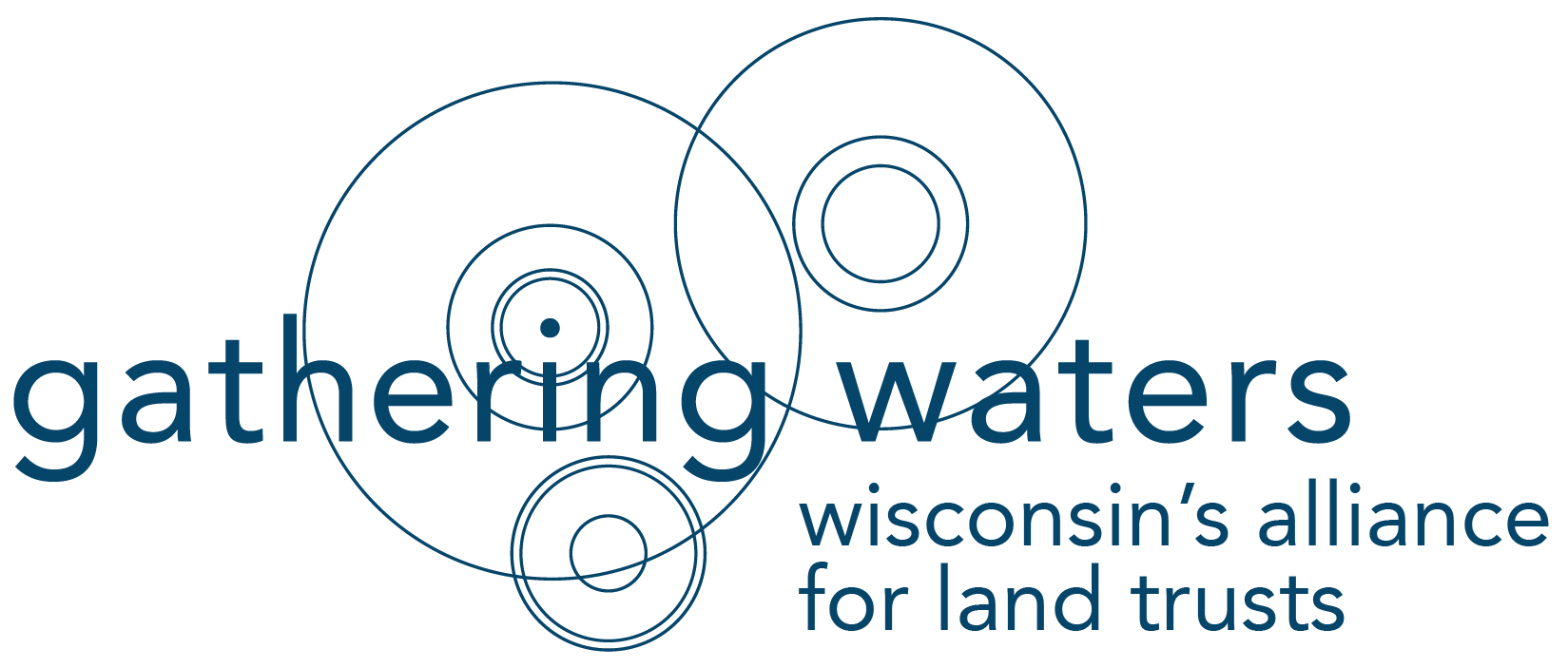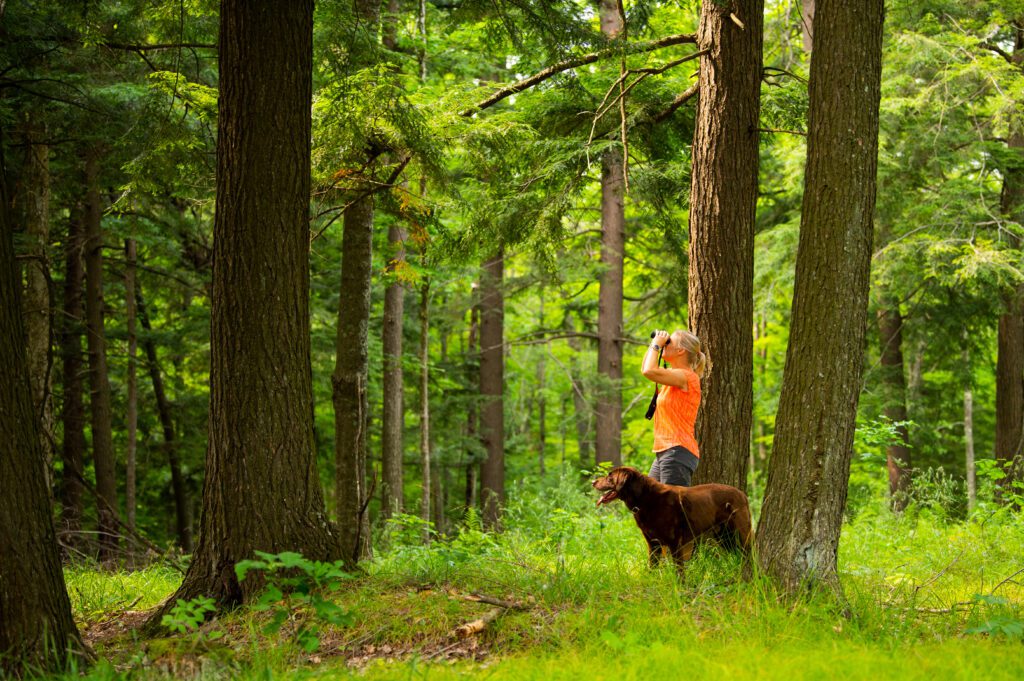Because of your support, the land trust community has new data to support land protection.
Often, good things result from challenging situations. This was the case with the Pelican River Forest project. In addition to forcing public debate, this project gave rise to a new group of dedicated supporters, and triggered two new research projects.
Pelican River Forest became a catalyst, forcing public debate.
Let’s set the stage with a little background.
During the last half of 2022, The Conservation Fund applied for state funding through the Knowles-Nelson Stewardship Program (KNSP) to protect a total of 70,000 acres. It would be one of the largest forestland conservation projects in state history.
State funding, matched with federal funds that have already been awarded, would have guaranteed that the forest would be protected and sustainably managed for proper growth and harvesting. It would also ensure the forest remained open to the public for outdoor recreation, including hunting, fishing, and other silent sports, as well as snowmobiling and ATV/UTV riding.
Permanent protection of the Pelican River Forest through the Knowles-Nelson Stewardship Program would have cost just $71 per acre.
It was a good plan. So good, in fact, the Wisconsin Department of Natural Resources approved the project. But since the amount of the Knowles-Nelson grant was over $250,000, the project had to clear one more hurdle before permanent protection was a reality.
That hurdle was the approval of Wisconsin’s Legislature’s Joint Committee on Finance.
Initially, anonymous objections by two people on the Joint Committee on Finance (JFC) blocked the Pelican River Forest project.
With this situation coming so soon after a similar controversy with the Cedar Gorge Clay Bluffs Nature Preserve, supporters of conservation would have none of it. They took to the media, sending letters and opinion pieces to editors of local and state news outlets talking to anyone who would listen.
The story appeared in headlines of local weekly newspapers and statewide journals. And the message was clear. Anonymous objections did not belong in the state’s Joint Committee on Finance.
The Wisconsin Legislature’s Joint Committee on Finance deals a blow for Pelican River Forest.
As public pressure increased, the objectors came forward.
It took five long months after the initial objections were lodged for the committee to act. Then, instead of a public hearing, they invited the public to watch them vote down the project.
There was no public debate.
There was no voice raised for the forest.
Just a “NO” vote to state funding for the Pelican River Forest project.
But, the story doesn’t end there.
Even though the vote didn’t go the way we had hoped, there were still some positive outcomes.
Supporters of the project founded the Friends of Pelican River Forest. Gathering Waters launched pelicanriver.org as a resource for the Northwoods citizens coming together to address the issues blocking the protection of the property.
Many were aghast at the lack of transparency. Pelicanriver.org empowered people to write letters to the editor, add their names to a petition, and organize meetings.
And the outcry made a difference.
This high-profile project has forced a public debate, causing opponents of land conservation to go on the record. Even though the Pelican River Forest project is still not finished, meaningful progress toward change has been made.
The controversy around Pelican River Forest sparked two new research reports.
With a grant from the David. L. & Rita E. Nelson Fund at the Community Foundation for the Fox Valley Region, Gathering Waters was able to partner with the Wisconsin Policy Forum and publish a conservation research project.
Released in March 2023, the Wisconsin Policy Forum report entitled “This Land is Our Land” highlights the importance of protecting Wisconsin’s natural resources. The publication also shows where Wisconsin ranks for investment in land protection relative to other states in the U.S. Some of the key results are below.
- Natural areas provide flood control and contribute to cleaner air and clearer water for the improved health of people and wildlife. These services are worth $2 billion per year.
- Wisconsin ranks second in the nation for total employment in the forestry industry with 61,000 jobs.
- Conservation bolsters outdoor recreation, which added $8.71 billion to Wisconsin’s economy and supports over 89,000 employees.
- Wisconsin ranks fourth in the nation for sales of hunting and fishing licenses.
- Our state comes in 22nd in the United States for the number of acres of protected public land, behind neighbors Minnesota (19th) and Michigan (21st).
- And perhaps most sobering, but not surprising given the declines in conservation funding, Wisconsin ranks 50th in the nation for per capita spending on state parks.
State funding for land protection projects through the Knowles-Nelson Stewardship Program has declined by 88% since 2007, as has the revenue the Department of Natural Resources receives from the state. That has gone down 68% in nearly three decades.
Of course, those are just a few highlights – and lowlights – but they prove the value of land conservation and the need to fund it. Click here to read the full report.
With controversy swirling around the Joint Committee on Finance, it was time to take the pulse of the community to see where Wisconsin voters really stood on these issues.
Polling data shows that Wisconsin voters overwhelmingly support transparency and state funding for land protection.
New Bridge Strategy (Republican) and FM3 Research (Democrat), a bipartisan research team, completed 500 interviews with registered voters throughout the state of Wisconsin.
Researchers found that voters overwhelmingly support transparency in the Knowles-Nelson Stewardship grant review process; they also support funding for natural climate solutions.
The March 2023 poll launched in partnership with The Nature Conservancy of Wisconsin, showed:
- Nearly nine in ten voters (89%), regardless of political affiliation, support or strongly support public hearings for land protection funding and want objections to projects voiced publicly.
- Four in five voters (80%) support an investment of $1 billion for conservation projects over the next 10 years that would reduce emissions and increase carbon storage. These projects were described as conserving and replanting forests; conserving and restoring wetlands to protect against floods and storms; and reducing the loss of natural areas.
Click here to read the full report.
The results of these two research projects will not only help fight the dysfunction in the review and approval of state funding for conservation projects, but they will also give land trusts more data to support land protection projects.


